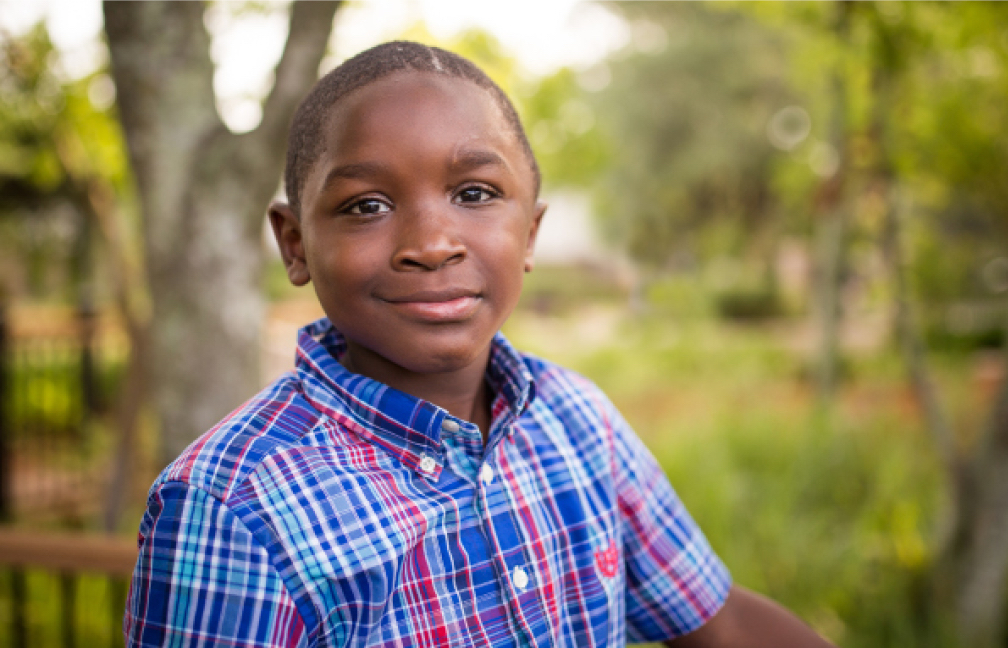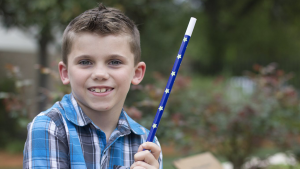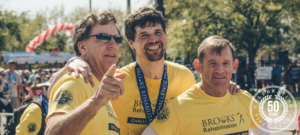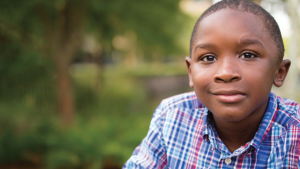Jenoa Alford – Back to being a typical boy

Back to physical health resource hub
Jenoa Alford was enjoying his yearly summer visit to Jacksonville when he was struck by a car and dragged several feet. Little Jenoa was left with several skull fractures and a traumatic brain injury. He then suffered a stroke after the accident, leaving the left side of his face slightly paralyzed due to nerve damage.
Jenoa came to Brooks Rehabilitation after two surgeries and several days in intensive care. “He is a very social kid, usually the first to make friends in a room full of strangers. It was tough seeing him like that,” said his father, Bill Alford. “The doctors, nurses and therapists at Brooks helped him wake up. He had no recollection of what had happened to him. Soon, we started seeing his personality return.”
Doctors and therapists were elated by Jenoa’s dramatic improvements. Jenoa’s mother, Kentura Richardson, said, “I appreciated them being very compassionate. Brooks made recovery fun for him. They helped us make Brooks our home for the time being.” After a week in Brooks Rehabilitation Hospital, he was well enough to be discharged to Brooks outpatient therapy.
Jenoa and his parents also utilized the Brooks School Re-entry Program to help aid in the smooth transition back to school – both in his hometown in Arkansas, and again when Jenoa and his mother returned to Jacksonville to continue his therapies with Brooks.
“Successful school re-entry is extremely important to children with traumatic brain and spinal cord injuries because their injuries are so often misunderstood,” said Deborah P. Davis, M.S., Brooks School Re-entry coordinator. The Brooks School Re-entry Program provides training and support to teachers and administrators regarding a child’s specific medical diagnosis. Additionally, a School Re-Entry coordinator will often go to school with the child and provide education to help classmates understand the unique challenges facing each child.
“I began working with Jenoa and his family while he was still in the hospital. I got him enrolled in Duval County Schools Hospital/Homebound services,” said Davis. “He still had significant neuromotor and cognitive deficits from the accident. He completed a year of pediatric occupational therapy to help him return to a classroom. When he was able, I arranged for him to utilize Exceptional Education and Student Services (ESE) for children with disabilities.”
Jenoa wasn’t expected to survive, much less thrive. Despite all that he endured, Jenoa is back to being a typical child. He loves football, video games and spending time with his friends at school.


